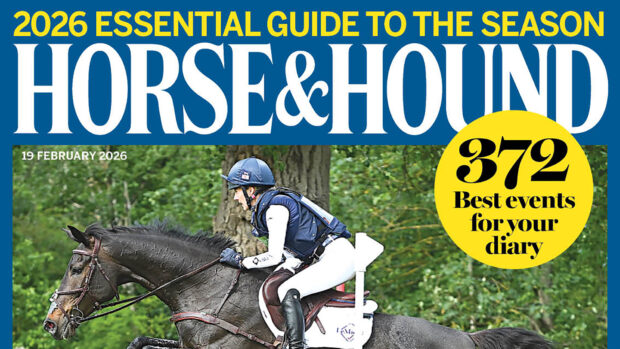The group leading racing’s Brexit preparations has advised the industry not to move horses to and from the EU “unless absolutely necessary” for “at least” the first fortnight of 2021.
The Thoroughbred Industries Brexit Steering Group has recommended against moving horses across borders in the first two weeks of January owing to the risk of delays and disruption.
H&H understands British Equestrian (BEF) will be issuing similar advice in the near future. More details and a tool kit for those with registered horses (those with FEI wraps on their passports) will be released in the coming days.
Those looking to move horses early in the year have also been urged to stay vigilant to any alterations as advice is liable to change.
“We know that some people want to make plans for the new year, but the picture will remain unclear until we know the terms of any new agreements between Britain and the EU,” said Thoroughbred Industries Steering Group chair, Julian Richmond Watson.
“Even if there is an overarching trade deal, we will still need specific arrangements to be agreed covering the movement of thoroughbred horses.
“If industry members want to avoid the risk of delays or disruption, we advise them not to schedule movements in the first two weeks of 2021.”
Major changes will come into force from the end of the Brexit transition period on 31 December, which will affect the rules for transporting horses. British racing and the BEF are in frequent contact with the government about Brexit and transporting horses between Britain, EU and the Republic of Ireland, but some areas are still awaiting clarification.
A 90-minute, 30-slide Defra webinar on 4 November outlined the new procedures those involved in transporting horses between Britain, the EU and Republic of Ireland will need to take. The Q&A session raised a number of urgent questions, which Defra has taken away to be answered, many of which covered crucial logistics such as transporter requirements, border control post opening times and timing of vet signatures on export health certificates.
The National Audit Office also warned in its latest report into the UK border’s preparedness for the end of the Brexit transition period, published on 6 November, that there is “likely to be significant disruption at the border from 1 January”.
Studbooks are also still awaiting EU recognition, which means the only horses currently considered “registered” by the EU are those registered with international organisations managing competitions, so sport horses with FEI wraps on their passports, and those registered with the Hurlingham Polo Association.
This means racehorses are still considered “unregistered” as the British Horseracing Authority does not manage international competitions and Weatherbys is among the studbooks awaiting recognition by the EU. While unregistered horses can still travel, there are additional steps that must be taken to those required for registered horses.
Article continues below…
You might also be interested in:

Step forward to secure international equine travel after Brexit: warning failure could cost ‘billions’ *H&H Plus*
A step forward has been taken to help secure the seamless travel of horses between Britain and EU member states

Urgent questions over post-Brexit international horse transport *H&H Plus*
A Defra webinar on 4 November explained in detail the steps anyone taking horses from Britain to EU member states

Subscribe to Horse & Hound magazine today – and enjoy unlimited website access all year round
The Thoroughbred Industries Brexit Steering Group is warning that whether a trade agreement is reached or not, it believes there will be “additional friction in moving thoroughbreds through key ports from 1 January, with the potential for initial disruption”.
The group is advising that if horses have to be moved within the initial two-week period, that those involved contact a transporter or shipping/customs agent for further guidance as a matter of priority.
Mr Richmond Watson added: “Our message right now is ‘stand by, change is coming’. We would ask participants to keep up to date with the latest information regularly via the Brexit page on britishhorseracing.com and await direct communication from their membership body once we know the details.
“We continue to work closely with Defra and all other relevant UK government departments, who are well informed about the needs of the racing and breeding industries. We are also in regular contact with our counterparts in Ireland and France and other EU jurisdictions.”
For more information, visit the government website
Horse & Hound magazine, out every Thursday, is packed with all the latest news and reports, as well as interviews, specials, nostalgia, vet and training advice. Find how you can enjoy the magazine delivered to your door every week, plus options to upgrade to access our H&H Plus online service which brings you breaking news as it happens as well as other benefits.




